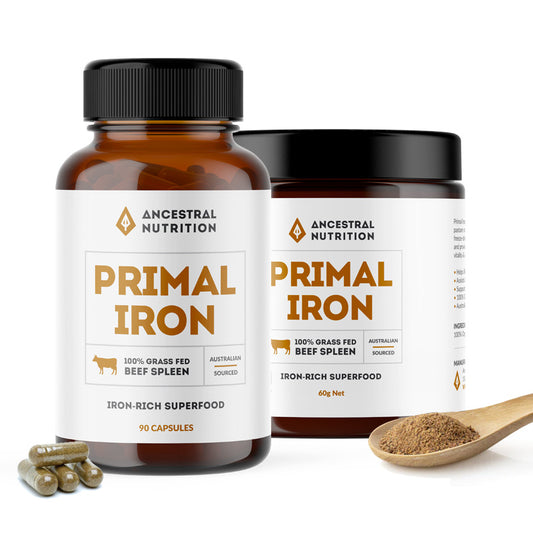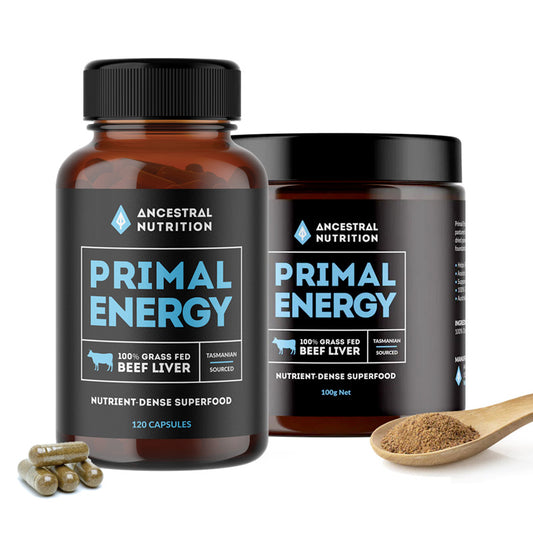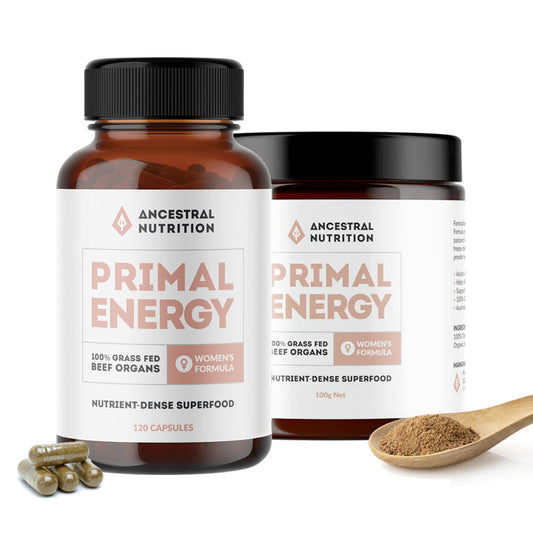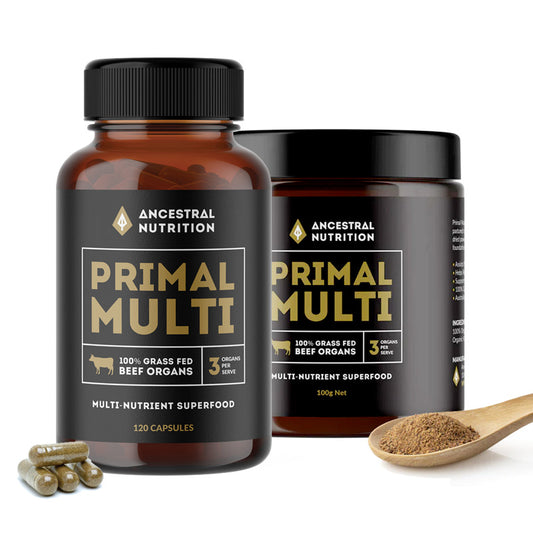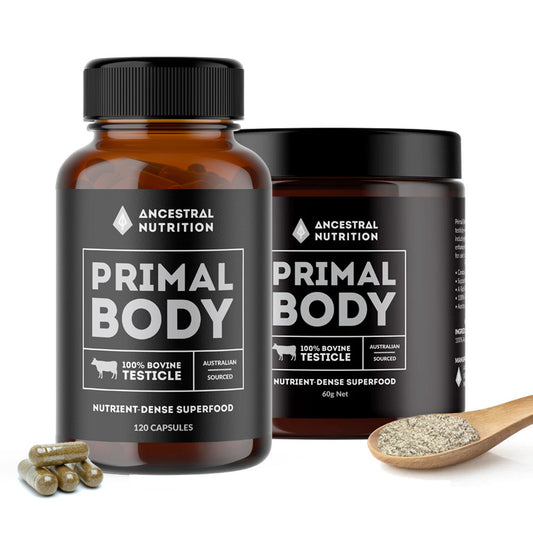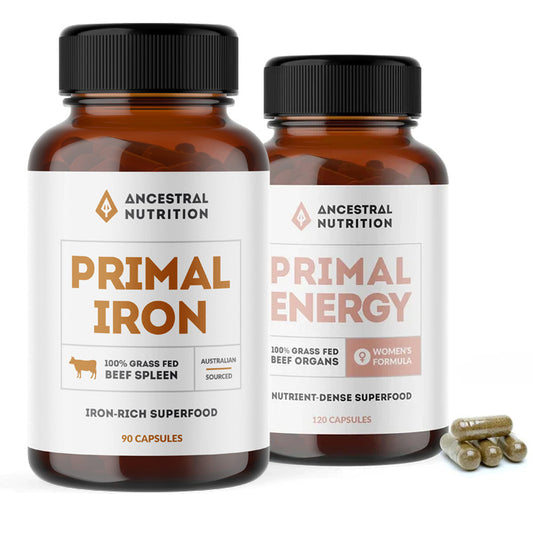Should We Really Worry About Eating Red Meat?
article by Emily CollyerRed Meat in Context – Why the Whole Picture Matters
Does eating red meat affect long-term health outcomes, or can it be part of a balanced diet? Historical examples, like the Plains Indians who relied on buffalo, and populations such as Seventh Day Adventists who are vegetarian, show that longevity can occur in very different dietary contexts (Hyman, 2016).
The key is nuance: meat alone is rarely the whole story. The type of meat, overall diet, lifestyle, and context matter just as much, if not more, than meat consumption in isolation.
Why Red Meat Often Gets Attention
Many studies linking red meat to health outcomes observe populations with higher meat intakes who also often have other lifestyle factors:
- Higher intake of sugar, refined carbohydrates, and ultra-processed foods
- Lower intake of fruits, vegetables, whole grains, and dietary fibre
- Less physical activity or higher smoking prevalence
- Overall differences in diet quality and lifestyle habits
Media headlines often oversimplify this, suggesting that “meat is bad,” when in reality, the groups studied may differ in multiple lifestyle factors beyond meat intake. For example, the AARP Diet & Health Study observed that participants consuming higher amounts of meat also tended to have higher caloric intake, lower fruit and vegetable consumption, and less physical activity.
The Role of Fibre and Plant Foods
Dietary fibre is a significant factor when interpreting research on meat and health. People who eat more plant-based foods typically consume more fibre. Observational studies suggest that higher fibre intake is associated with lower risks for certain health outcomes, while high red meat intake combined with low fruit and vegetable intake is more consistently observed with differences in outcomes.
Health-Conscious Meat Choices
Some people choose unprocessed, pasture-raised meats and pair them with vegetables, fruits, and other whole foods. Observational studies rarely focus on this group specifically, making it difficult to isolate the effect of meat itself. One cohort study of around 11,000 participants (57% omnivores, 43% vegetarians) found similar outcomes between these groups when overall diet and lifestyle were considered.
Processed Meats and Cooking Methods
While fresh, unprocessed meat can be part of a diet, processed meats—those that are smoked, cured, or contain added nitrates/nitrites—may contain compounds that are of interest to researchers. High-temperature cooking, such as frying or grilling, produces substances called heterocyclic amines (HCAs) and polycyclic aromatic hydrocarbons (PAHs), which have been studied in laboratory settings.
Ultra-processed foods (UPFs) are increasingly examined in research as contributors to differences in health outcomes. Observational data indicate associations between higher UPF intake and certain outcomes, with UPFs making up a substantial portion of many diets.
The Role of Lifestyle
Physical activity, body weight, metabolic health, and other lifestyle factors all influence long-term health outcomes. Observational studies examining red meat consumption are often influenced by these broader lifestyle factors, making it difficult to attribute outcomes solely to meat intake.
Putting It All Together
Current evidence indicates:
- Moderate, unprocessed red meat can be included as part of a varied diet.
- Processed meats and high-temperature cooking methods may be more relevant when considering potential health impacts.
- Fibre, plant foods, and overall dietary patterns are important context.
- Ultra-processed foods are commonly observed in association with health outcomes.
- Lifestyle factors such as physical activity and metabolic health contribute to long-term health patterns.
When considering dietary choices, focusing on nutrient-dense foods, balanced meals, and overall lifestyle patterns is supported by current research. Organ meat supplements, for example, can help contribute nutrients when used as part of a varied diet.
References
Fiolet, T., et al. (2018). Consumption of ultra-processed foods and cancer risk: Results from NutriNet-Santé Prospective Cohort. BMJ, 360, k322. https://doi.org/10.1136/bmj.k322
Hyman, M. (2016, January 22). Is Meat Good or Bad for You? DrHyman.com. https://drhyman.com/blogs/content/is-meat-good-or-bad-for-you
Isaksen, I. M., & Dankel, S. N. (2023). Ultra-processed food consumption and cancer risk: a systematic review and meta-analysis. Clinical Nutrition, 42(6). https://doi.org/10.1016/j.clnu.2023.03.018
Pati, S., et al. (2023). Obesity and Cancer: a Current Overview of Epidemiology, Pathogenesis, Outcomes, and Management. Cancers, 15(2), 485. https://doi.org/10.3390/cancers15020485
Sivasubramanian, B. P., et al. (2023). Comprehensive Review of Red Meat Consumption and the Risk of Cancer. Cureus, 15(9). https://doi.org/10.7759/cureus.45324



